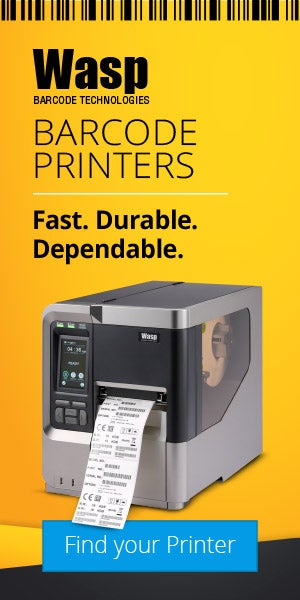Wasp Barcode Technologies: The Barcode Solution People
What's Causing Such High Tax Bills For Your Small Business

It’s a question that private citizens and business owners alike ask themselves often: Am I paying too much in taxes?
Taxes: We love to hate them. Of course, many of us understand the value of paying taxes in some capacity—there would be no roads, bridges, public schools, or emergency services without them—but we all hope to pay as little as humanly possible.
And when it comes to
small business tax rates, you can understand the concern. Every dollar a small business can hold onto is another dollar that can be invested in that business’s future. So the question is, how can small business owners pay exactly what they should pay in taxes, and nothing more?
[Tweet "Every dollar a small business can hold onto is another dollar that can be invested in that business’s future."]
What a business owes in taxes depends on where the business is located, what kind of legal structure it utilizes, the amount of revenue it pulls in, and
a variety of other factors—so there’s no universal formula that everyone can use to calculate what they
should be paying.
So where can small business owners turn to find ways to lower their tax bill? Let’s review the biggest takeaways from the responses to the questions posed in the
Wasp Barcode State Of Small Business Accounting Report, to identify any trends that might be helpful.
#1: There’s uncertainty over taxes
According to the report, 52 percent of the respondents—393 business owners or executive/senior managers of small businesses, virtually all of which are headquartered in the U.S. and run the gamut of industries, from construction and healthcare to education and IT—feel that they either pay too much in taxes, or they aren’t sure.

Just the percentage of respondents who definitely feel that they pay too much in taxes (37 percent) is a shocking number. It’s unclear just what drives these responses—are these feelings backed by hard data, or just gut reactions?—but clearly there is some concern in the SMB community that they are giving more away than they need to.
#2: However, few feel that the accountant is to blame
A decisive 62 percent of respondents say that their accountant is doing all they can to reduce their tax bill, with only 14 percent saying the opposite.
Additionally, 67 percent say they are “very satisfied” with their accountant’s services, as opposed to less than 1 percent who say they are “very dissatisfied” (to be fair, anyone who feels very dissatisfied with their accountant probably moved on from working with them long ago).
As we can see, there’s a bit of a disconnect here. If the accountant is primarily in charge of handling the business’s tax bill, and many feel that their bill is either too high or aren’t sure, but don’t want to blame the accountant—where can we turn to find the solution?
#3: The top complaint about accountants
Parts of the report show the breakdown between differently sized small business—such as businesses with 11-25 employees, with 26-50 employees, and 51-100 employees. And across the board, the biggest complaint that every size business has about their accountant is that the accountant is more reactive than proactive.
Other concerns include guidelines, lack of guidance, doesn’t educate the employer enough, and doesn’t provide advice. But “more reactive than proactive,” particularly for mid-sized small businesses, takes the top spot every time.
Of course, it’s much more common to react than to proact in accounting, because so much of that job has to do with creating a financial record of what already happened. It’s hard to be proactive when you don’t have all the tools at your disposal to predict what might come next.
That’s what brings us to perhaps the most revealing answers of the report.

#4: Businesses aren’t taking asset management seriously enough
Fixed asset management is the oversight of a company’s investments in equipment that contributes in the production of income. That includes company vehicles, computers, printers, and manufacturing equipment.
Because these machines and other investments are so crucial to the company’s existence, it’s important to monitor them for needed maintenance, physical and financial depreciation, and even basic things like their location at any given time.
And yet, only 17 percent of respondents say they use an
asset management system that allows for auditing. How many of these businesses are tracking their assets using manual processes, we may never know.
As a result, a whopping 74 percent of respondents don’t understand how ghost assets affect their books, with almost half of all respondents saying they don’t know what ghost assets are anyway.
A ghost asset is an asset that appears on the company’s ledger but can’t be found in real life. Was the asset stolen? Was it rendered unusable after a part was taken out to replace a missing piece in another machine? Did it never arrive to the office in the first place?
Ghost assets are problematic beyond their effect on a company’s ground game. (Imagine you were ready to take a laptop or mobile computer out with you to a job site, only to find there are no more remaining.) They can have a
major impact on the bottom line, in just some of the following ways:
- They increase property taxes
- They increase insurance premiums and risk
- They create budgeting issues for future capital expenditures
- They waste employee resources
- And they can have immense legal repercussions, thanks to the Sarbanes-Oxley Act
The number of issues that result from a lack of automated asset tracking is stunning. There’s also zombie assets (assets that appear in real life, but not on the ledger), and the amount of time that employees need to make up when they encounter fixed asset tracking issues.
(And this is just for fixed assets: Imagine if we included businesses that
don’t use an automated system for tracking their inventory as well. Is it any wonder that some business owners feel their tax bill is too high?)
If you’re a small business owner that wants a smaller tax bill, but haven’t invested capital in a fixed asset tracking system, you have no one to blame but yourself. It’s 2017: So many aspects of our business dealings are now down automatically, why should tracking assets and inventory be any different? For peak efficiency and effectiveness, explore your asset tracking options and give your poor accountant a hand.
 It’s a question that private citizens and business owners alike ask themselves often: Am I paying too much in taxes?
Taxes: We love to hate them. Of course, many of us understand the value of paying taxes in some capacity—there would be no roads, bridges, public schools, or emergency services without them—but we all hope to pay as little as humanly possible.
And when it comes to
It’s a question that private citizens and business owners alike ask themselves often: Am I paying too much in taxes?
Taxes: We love to hate them. Of course, many of us understand the value of paying taxes in some capacity—there would be no roads, bridges, public schools, or emergency services without them—but we all hope to pay as little as humanly possible.
And when it comes to  Just the percentage of respondents who definitely feel that they pay too much in taxes (37 percent) is a shocking number. It’s unclear just what drives these responses—are these feelings backed by hard data, or just gut reactions?—but clearly there is some concern in the SMB community that they are giving more away than they need to.
Just the percentage of respondents who definitely feel that they pay too much in taxes (37 percent) is a shocking number. It’s unclear just what drives these responses—are these feelings backed by hard data, or just gut reactions?—but clearly there is some concern in the SMB community that they are giving more away than they need to.



